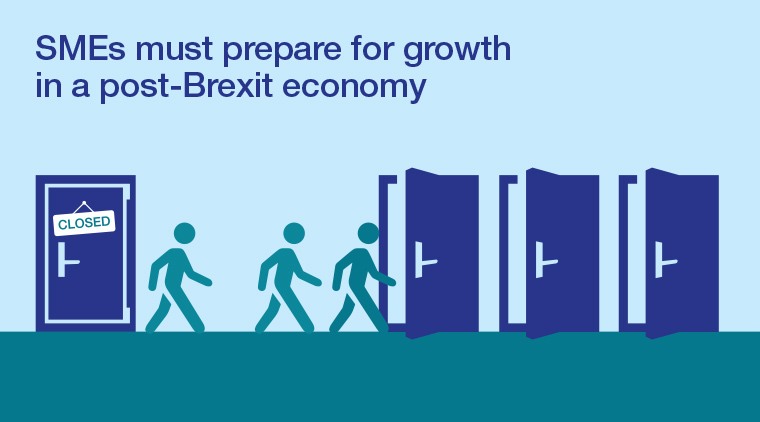
The long-term impact of Brexit may not be clear for some time, but it’s important to take action to mitigate short-term concerns as soon as possible.
It is too early to anticipate with any certainty what the consequences – positive or negative – will be of the UK’s vote to leave the European Union, but that is not to say SMEs can afford to wait and see. The second half of the year looks certain to be characterised by economic anxiety and it makes sense to pre-empt any issues as soon as possible.
Certainly, the initial indications for the economy are worrying. The British Chambers of Commerce warns its members were seeing a slowing of growth even before the referendum and the business group now expects no growth at all in the third quarter of 2016.
Following the result, the priority for SMEs in the short term should be to think about how to respond to the inevitable changes over the coming weeks and months. The following five areas should be among your immediate priorities.
Quantify the immediate economic effects
The headline surveys suggest the economy has already begun to slow and many economists are forecasting that a recession is now likely. But even assuming that’s correct, not all businesses will fare the same and it’s important for SMEs to now reflect on their own position over the next six months and beyond.
It may be that your firm has already begun to feel the effects of the referendum result – for better or for worse – but now is the time to re-examine your budgets and forecasts for the second half of 2016. Above all, talk to your customers about how they are intending to respond – and what that means for their spending with your firm.
Look at your currency exposure
Large numbers of SMEs are affected by currency movements in one way or another; if you’re one, think about how the fall in the pound we’ve seen since the referendum will impact your company. Broadly speaking, exporters benefit from this, while firms importing raw materials are more likely to lose out.
If your firm is vulnerable to currency movements, now may be the time to consider currency hedging, at least to take some of the uncertainty out of the next few months.
Address staffing issues
While nothing has changed legally since the referendum, if you employ staff from other European Union countries – or indeed any staff from overseas – they are likely to be feeling anxious. It’s important that you do your best to reassure them – you may not be able to make any promises about their future until the detail of Brexit is worked out, but you can make it clear that they have your support and are valued.
It may also be worth considering contingency plans for replacing significant workers in the eventuality that workers from EU countries may head home to avoid being forced to leave.
Consider customer markets
It’s always important to work with a diversified base of customers, but given the uncertainties, now is the time to think about whether you can spread your bets. If you’re particularly reliant on customers from other European Union markets, start thinking about how to broaden your horizons.
Think about the supply chain
Finally, focus on your suppliers in two different ways. First, are you dependent on suppliers from EU markets and, if so, how might such relationships be affected? Second, how financially secure are your suppliers – might a slowdown drive them out of business?
It may not be possible yet to answer these questions definitively. But start thinking about how you can diversify your supply chain to protect your business.
Take a look at our latest infographic: SMEs must prepare for growth in a post-Brexit economy







